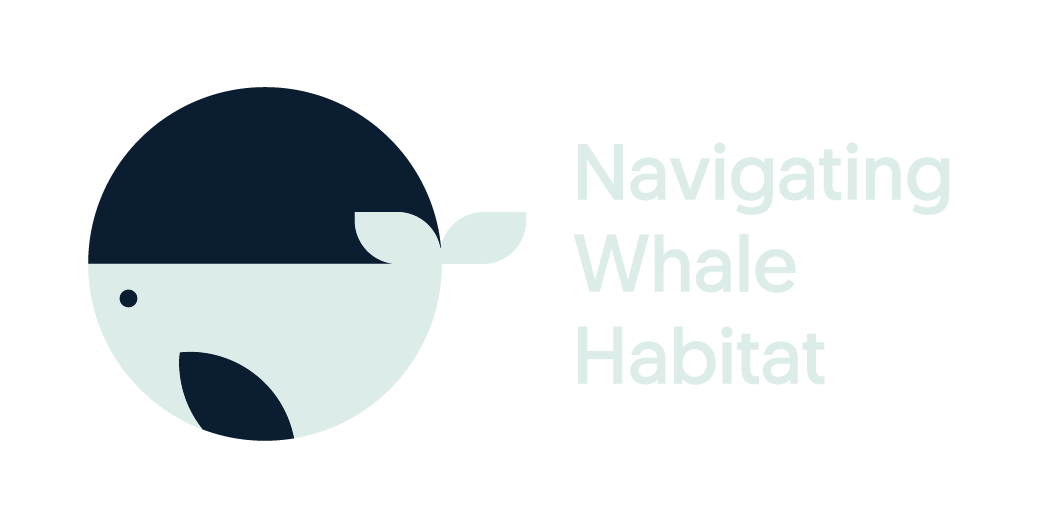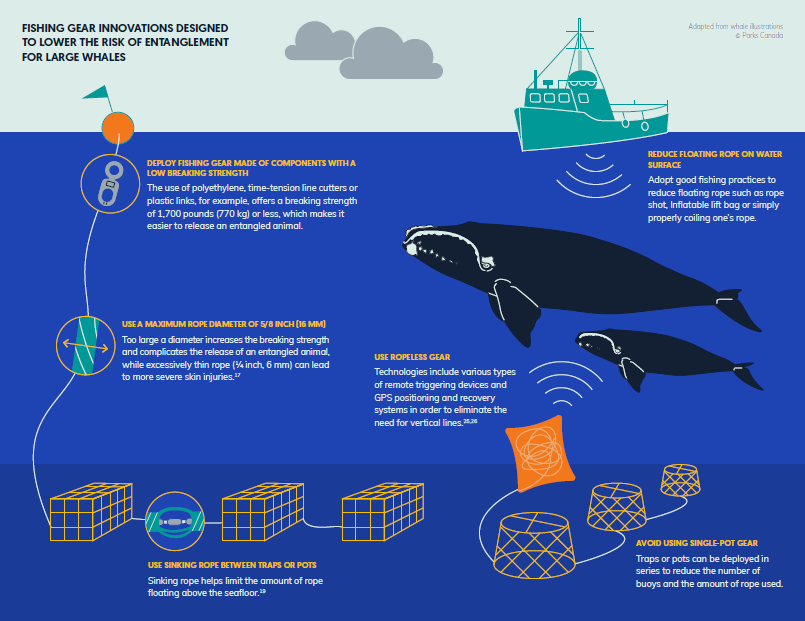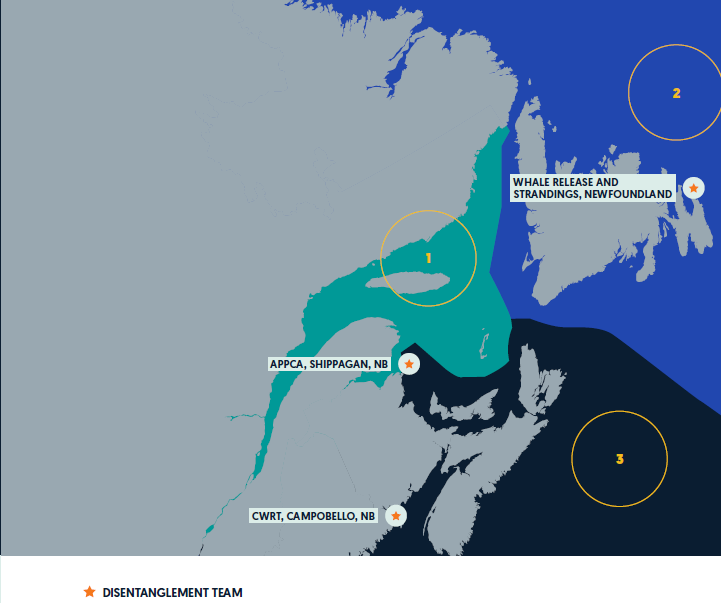What you can do
Fishers can collaborate in whale conservation projects in any number of ways. For example, they can make their boat available for scientific projects once the fishing season has ended, participate in discussion groups to brainstorm new ideas, talk about their needs and what kinds of actions are realistic to pursue, invest in the development of new technologies or join a team to submit a project.
Help collect data
You can participate in the data collection program of the Marine Mammal Observation Network (MMON), which aims to better understand the distribution and relative abundance of whales. To become an official observer member, please contact MMON at info@romm.ca.
As a citizen observer, you may also enter your sightings at the following link: observation.navigatingwhales.ca.
Participate in voluntary initiatives to reduce the risks of entanglement
Besides the mandatory measures that Canada has implemented to prevent and lower the risks of entanglement of North Atlantic right whales, fishers are encouraged to test new technologies and initiatives that can help minimize such incidents or facilitate the release of an entangled animal. A few examples of such measures are described below.
Participate in a program for the detection and removal of abandoned, lost or otherwise discarded fishing gear (ALDFG):
Report vulnerable marine species
To report a vulnerable whale, seal, or other marine species, contact your regional emergency network.
Identifying live, entangled and dead North Atlantic right whales.
Join the Facebook group Fishers helping whales :
Solutions to keep whales and fisheries alive.
You can also join a rescue team based on the geographic area in which you operate.
Bay of Fundy (Campobello), New Brunswick
Campobello Whale Rescue Team (CWRT)
Gulf of St. Lawrence (Shippagan), New Brunswick
Association des pêcheurs professionnels crabiers acadiens (APPCA)
Gulf of St. Lawrence and Labrador Sea (Portugal Cove-St. Philip’s), Newfoundland and Labrador



